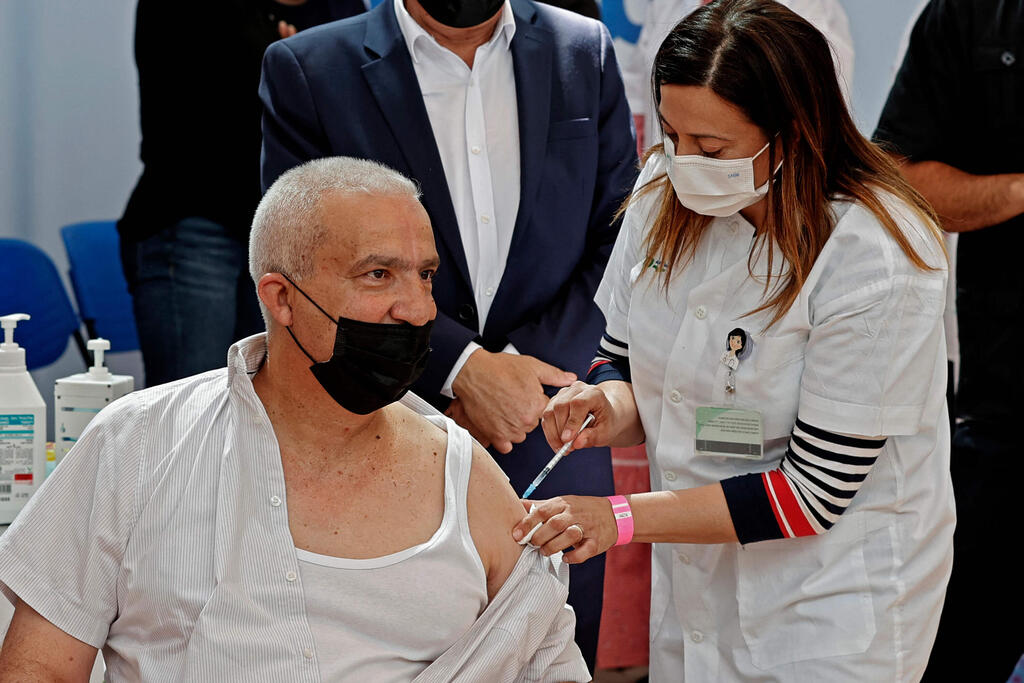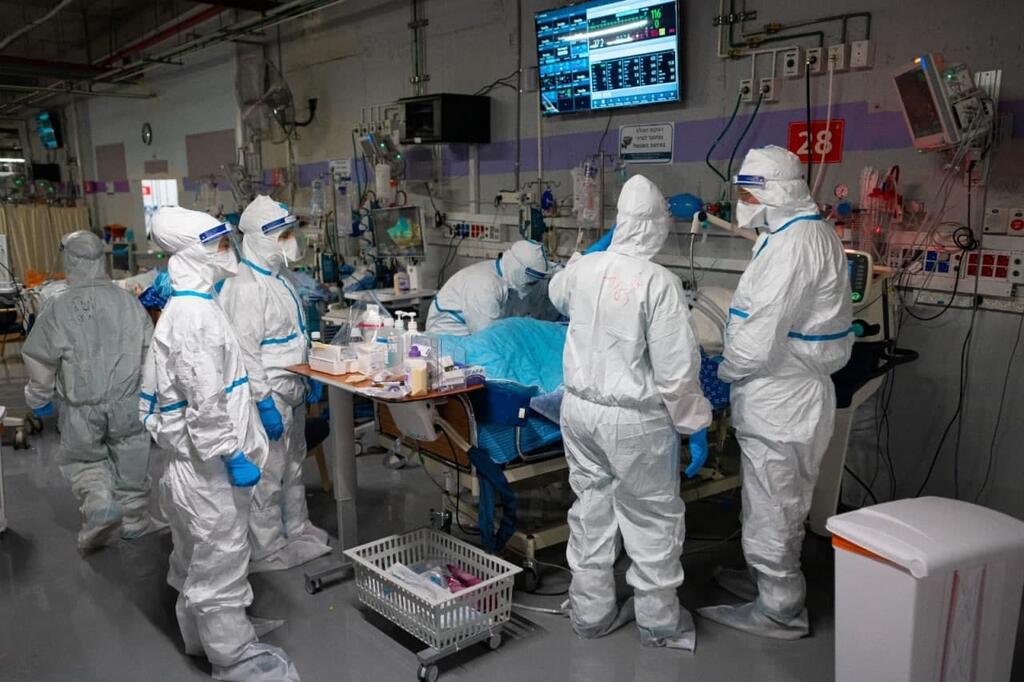Getting your Trinity Audio player ready...
The Health Ministry on Thursday approved the immediate expansion of Israel's coronavirus vaccine booster shot campaign to include Israelis over the age of 40.
Israel began providing booster shots to Israelis over the age of 60 and some at-risk groups earlier this month. Last week, the jab became available for those aged 50-59, employees of geriatric and health care institutions, and to people who suffer from underlying health conditions.
3 View gallery


A man receiving his coronavirus vaccine booster shot at a clinic in the central Arab town of Tayibe
(Photo: AFP)
The authorization by the ministry's inoculation expert panel - pending final confirmation by Health Ministry Director General Prof. Nachman Ash - comes amid encouraging turnout of Israelis coming to get their third shot, with 1,245,325 eligible Israelis receiving a supplementary jab as of Thursday evening.
Ash has said he is opposed to expanding the drive to the whole general public for the time being.
Shortly after the Health Ministry approval, Prime Minister Naftali Bennett said that he would get the jab Friday morning.
"It is time to step up efforts to stem the Delta wave and prevent a lockdown that would hurt the economy and everyone's livelihood. It's within reach. Do not waste time, go out and get vaccinated," said the 49-year-old Bennett. "Israel continues to be at the forefront of the global response to the pandemic."
The Health Ministry's Vaccination Committee also recommended that the booster shot rollout will be expanded to include pregnant women, patients and caregivers in welfare and health institutions, caregivers of the elderly and people in risk groups such as diabetics and people suffering from obesity.
People suffering from other medical conditions not included in the aforementioned groups can contact their healthcare provider to see whether they are eligible for the jab.
Israelis who have recovered from the virus will not be vaccinated at this time with a third dose.
Prof. Ran Balicer, who heads a panel of medical professionals advising the Health Ministry on the pandemic, told Ynet earlier Thursday that health authorities managed to curb the spread of the pathogen among the over 60s, which he attributed to most of them being inoculated with the third shot.
"In the last two days, we have seen a real slowdown in the number of new infections among people aged 60 and over, most of whom are vaccinated with the third vaccine dose," he said.
"This is important because it is the age group from which most severe cases are originating, but still, 100-90 severe patients a day means the disease has not said its last word."
First published: 21:36, 08.19.21



